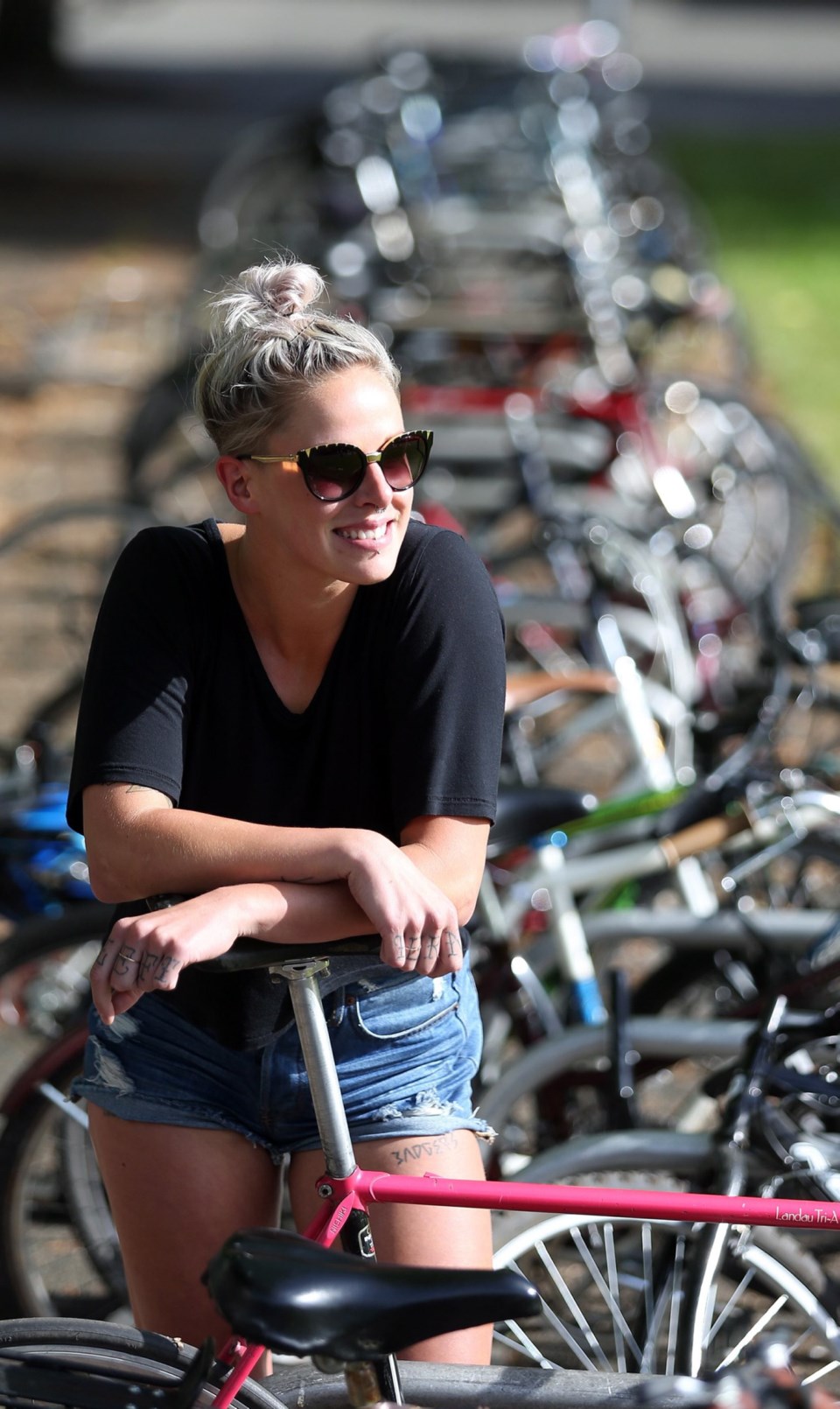Cyclist Gillian Carleton has stood proudly on an Olympic podium as a medal was draped around her neck, and she has fallen to her knees ashamed as she pressed a knife into her own flesh.
Now Carleton, who has struggled with depression, is changing gears. She’s on a course designed to achieve a healthy life balance.
The 2012 Olympic track-cycling bronze medallist got off her bike after winning the Pan-American Continental Championships in Mexico in September and walked away from competitive cycling. Possibly forever.
The 25-year-old returned to the University of Victoria in January to finish a degree in biology and psychology, this time focused not on the next race, but herself.
Her immediate goal is to stave off negativity and “learn how to live with myself as best I can.” She hopes to go into addictions research or earn a master’s degree in neuroscience. “[My experience] is a huge motivation factor to go into a healing profession,” Carleton said. “It’s hard to think of how I felt in my worst times, and to imagine so many people out there feeling worse than that, and there’s no support available for them or if there is, there’s such a stigma around it they don’t feel like they can access it.”
Carleton, who will lead a 105-kilometre road ride in the Ride Don’t Hide charity and awareness ride for the Canadian Mental Health Association on Sunday, wants people struggling with depression to know they are not alone and that if they reach out, as she did in the spring of 2013, there is support.
Carleton has felt depression’s suffocating presence since she was about 13. It first manifested as an eating disorder.
“I don’t remember a lot from those years. It was pretty blank, dark at that time.”
But Carleton was also a fierce athlete, a competitive junior national triathlete with Olympic potential. Throughout the years, she fought depression by pouring herself into punishing triathlon training.
But by her first year at UVic, depression had taken hold. She flunked and dropped out. A salvation of sorts came in the summer of 2011 when she began track cycling with the reopening of Victoria’s Westshore Velodrome.
Within months of starting training, she medalled in three events in that year’s Canadian National Track Cycling Championships.
The “frantic anxiety and mania” that drove her to abuse alcohol, cigarettes, drugs, sleeping pills and antidepressants, and to cut herself up and down her legs, also pushed her to train hard.
In the 2012 London Olympics, eight months after a devastating crash in a World Cup track race in Mexico and just a year after starting in the sport of track cycling, Carleton won a bronze medal. She was an Olympian.
“It was awesome, obviously,” Carleton said. “You would think having some singular focus like training for the Olympics would lessen the intensity of the other stuff, but I had the most ups and downs then that I had of any year.”
Post-Olympics, it didn’t take long for depression to drag her down once again. In the spring of 2013, “the whole world really went dark for me,” she said.
She wrote in Bicycling magazine about heading out for training rides with her legs shaking and head pounding — “the result of drinking myself to sleep or bingeing and purging and cutting all morning in an effort to punish myself for being, in my eyes, a waste of time and a disappointment as a professional athlete.”
It all ended when she became scared “what might happen” if she remained silent about her disease.
Carleton went to the Archie Courtnall Centre’s psychiatric emergency services unit at Royal Jubilee Hospital.
“Programs like that need more support; that’s what saves people’s lives,” she said.
Carleton saw a psychologist and psychiatrist and began the steps of cognitive behavioural therapy to develop new coping strategies.
Recently, she has tapered off antidepressants. Carleton wants to learn how to find balance on her own. If she can do that, maybe she’ll return to competitive cycling, she said.
